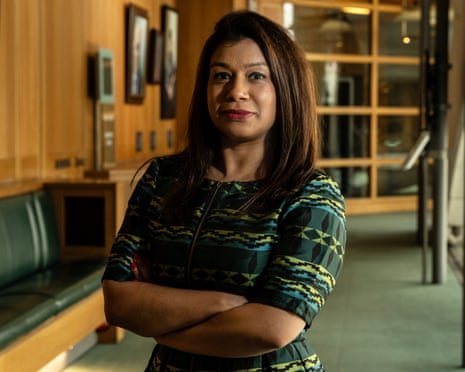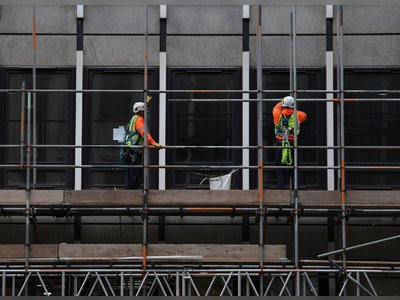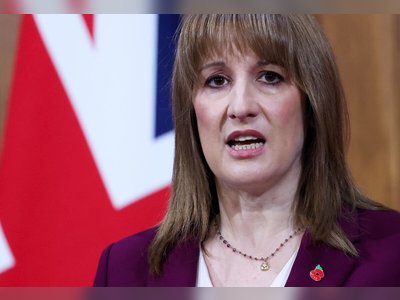
UK Lawyers Condemn Bangladesh Trial of Former Minister Tulip Siddiq as ‘Contrived’
Prominent British legal figures call for fair trial reforms as Siddiq faces in-absentia verdict with potential life sentence
A coalition of distinguished British lawyers has formally written to Bangladesh’s high-commissioner in London, denouncing the ongoing trial of former United Kingdom minister and Labour MP Tulip Siddiq as “artificial and contrived”.
They allege the trial lacks fundamental fairness.
Siddiq, who resigned her ministerial post earlier this year, faces a verdict and potential life sentence in absentia on charges of influencing her aunt, former Bangladeshi prime minister Sheikh Hasina, to secure a land plot in a suburb of Dhaka.
The lawyers, including former UK justice secretary Robert Buckland KC and ex-attorney general Dominic Grieve KC, contend that Siddiq was not formally informed of the charges, denied meaningful access to legal representation and that a lawyer she selected was placed under house-arrest with threats to his daughter.
The letter emphasises that Siddiq is a UK national and elected MP residing in London, not a fugitive, and thus entitled to fair treatment and potential extradition only if a standard legal process is observed.
The lawyers argue that public statements by Bangladeshi anti-corruption officials and the interim government’s leadership — which have repeatedly asserted her culpability — jeopardise impartiality.
They call on Dhaka’s authorities to rectify the process so that Siddiq can properly defend herself, arguing the current proceedings fall short of internationally recognised standards of justice.
Siddiq vehemently denies all allegations, describing them as politically motivated and driven by the fallout from her aunt’s removal from power last year.
She resigned from her UK government role in January on the basis that the proceedings were distracting from her duties.
The trial, which began this August, is among a series of anti-corruption cases brought by Dhaka’s interim government involving senior figures from the former administration.
With the verdict set to be delivered soon, the UK legal intervention adds diplomatic and legal pressure on Bangladesh to ensure transparency and fairness in the process.
The situation has sparked concern in British legal circles about international standards of justice when nationals face trial abroad, especially in politically charged contexts.
Observers note that the outcome could influence future UK-Bangladesh legal and diplomatic relations and calls for extradition cooperation.
The trial of Tulip Siddiq may now hinge as much on process and perception as on the substance of the charges themselves.
They allege the trial lacks fundamental fairness.
Siddiq, who resigned her ministerial post earlier this year, faces a verdict and potential life sentence in absentia on charges of influencing her aunt, former Bangladeshi prime minister Sheikh Hasina, to secure a land plot in a suburb of Dhaka.
The lawyers, including former UK justice secretary Robert Buckland KC and ex-attorney general Dominic Grieve KC, contend that Siddiq was not formally informed of the charges, denied meaningful access to legal representation and that a lawyer she selected was placed under house-arrest with threats to his daughter.
The letter emphasises that Siddiq is a UK national and elected MP residing in London, not a fugitive, and thus entitled to fair treatment and potential extradition only if a standard legal process is observed.
The lawyers argue that public statements by Bangladeshi anti-corruption officials and the interim government’s leadership — which have repeatedly asserted her culpability — jeopardise impartiality.
They call on Dhaka’s authorities to rectify the process so that Siddiq can properly defend herself, arguing the current proceedings fall short of internationally recognised standards of justice.
Siddiq vehemently denies all allegations, describing them as politically motivated and driven by the fallout from her aunt’s removal from power last year.
She resigned from her UK government role in January on the basis that the proceedings were distracting from her duties.
The trial, which began this August, is among a series of anti-corruption cases brought by Dhaka’s interim government involving senior figures from the former administration.
With the verdict set to be delivered soon, the UK legal intervention adds diplomatic and legal pressure on Bangladesh to ensure transparency and fairness in the process.
The situation has sparked concern in British legal circles about international standards of justice when nationals face trial abroad, especially in politically charged contexts.
Observers note that the outcome could influence future UK-Bangladesh legal and diplomatic relations and calls for extradition cooperation.
The trial of Tulip Siddiq may now hinge as much on process and perception as on the substance of the charges themselves.










